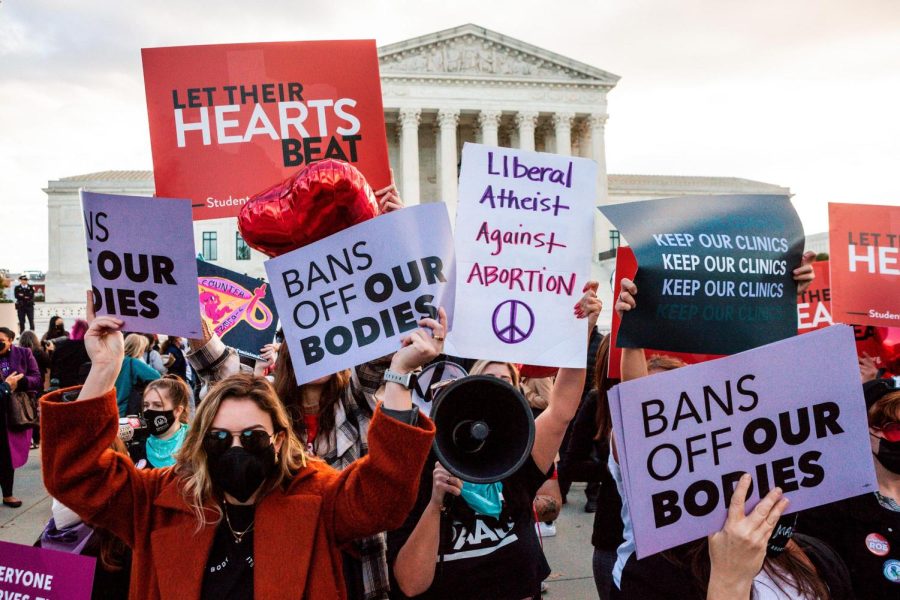Everything you need to know about Roe V. Wade
May 18, 2022
On January 22, 1973, the Supreme Court issued a decision in favor of “Jane Roe” stating that those in the United States had the right to decide whether to have an abortion or not without government restrictions. This ruling became known as Roe V. Wade and striked down any laws against abortion as unconstitutional. At the time, this decision eliminated laws against abortion in many states. However, recently, Roe V. Wade and abortion rights have been up for debate. The controversy surrounding abortions has significant impacts on many people across the country, and, if this right is taken away, the United States and its citizens are sure to be greatly affected.
Now, what is Roe V. Wade? In 1970 “Jane Roe” wanted action against Henry Wade. She had recently become pregnant with her third child, but was unable to access abortion care as it was recently banned in Texas. Wade was the district attorney of Dallas, Texas. At the time, the Supreme Court was against the assertion that the right to terminate pregnancy at any time should exist. Wade claimed that allowing the right to an abortion would go against state values. To make a compromise, the court attempted to balance the state’s interest in both the health of pregnant people and the possible life of fetuses. In order to create this compromise, it was suggested that abortions should be regulated, meaning, abortions would no longer be legal after the first trimester of pregnancy. Then, in 1992 the case Planned Parenthood of Southeastern Pennsylvania v. Casey, the Supreme Court ruled that restrictions on abortions are unconstitutional as long as they place a burden on the person seeking an abortion before the fetus is developed. Under these two court cases, it has been established that abortions should be legal without excessive government restriction.
But how does this apply to the United States today? Well, in February of 2022, an unprecedented leak revealed that the Supreme Court, with a conservative majority, would vote to overturn both Roe v. Wade and Planned Parenthood v. Casey. As of right now, these two cases are still signed into law. However, people have become increasingly concerned about the possibility that these cases could be overturned by the Supreme Court in the near future. To a lot of people, the repercussions of overturning Roe v. Wade may not be obvious. However, there are many ways in which this would impact people across the country.
If Roe v. Wade is overturned, one of the most major affects on the United States would be that there are eighteen states that have what are called “trigger laws” to ban abortions. Considering a study proving that one in four women in the U.S. get an abortion in their lives, eighteen states restricting this form of care would impact a significant number of United States citizens. If these eighteen states ban abortions, this could result in an influx of patients seeking care in states that still offer abortions. Not only would the lives of United States citizens be impacted, but the overall economy of the country would be affected. Research has found that, due to more people taking time off for pregnancies and reduced participation required in the labor force, abortion restrictions would cost the U.S. around $105 billion per year. Although Roe v. Wade has not yet been overturned, the possibility of it being removed from legislation has caused many to consider its implications.
In the year of 2022, social injustices have been extremely prevalent. With the possibility of Roe v. Wade being overturned, many have come to believe that this is yet another example of this. Now, this article isn’t intended to persuade you one way or the other but to, instead, inform you of this case’s implications and affects on various parts of society. Particularly in today’s United States, it is extremely important to do your research, so with all of this being said, find all the information you can about this case, its criteria, its impacts on the United States, and stay informed.

























